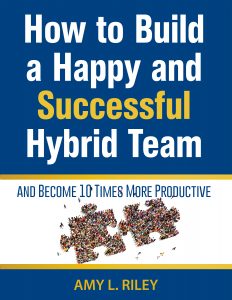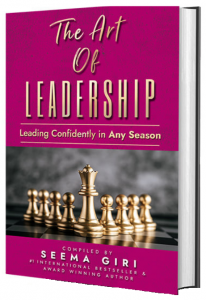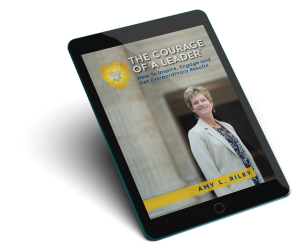How to Find Courage and Resilience to be
a Powerful Leader during Tough Times
Great leadership is more important than ever. There is ambiguity, uncertainty and safety risks right now. Working from home and working in new ways is magnifying the deficiencies and the strengths in the leaders around us.
So, how do we cope with that? What’s needed in leadership right now? I’d say all the same things that I’d have said prior to COVID-19. The key tenants of being a powerful, courageous leader continue to be the key tenants of being a powerful, courageous leader:
-
- Connect with your employees/associates/team members.
- Ask about what they need and what’s important to them.
- Let them know what they can focus on and how it will make a difference.
- Find ways to get them the support they say they need.
These leadership activities are just more critical now, and people feel it more intensely if something is missing in the leadership they’re experiencing.
Gallup, in their article COVID-19: What Employees Need from Leaders Right Now, highlights the employee needs of trust, compassion, stability and hope during a crisis. While engaging in what we’ve always known as powerful, courageous leadership, we can pay particular attention to meeting these needs. For example, clearly and transparently say what you know and don’t know to build trust. Ask the real questions of: “How are you?” and “How safe do you feel?” and listen intently to the responses to show compassion. Give employees specific guidance and a clear path to follow. Even if it’s just for the next week or the next few days. This provides stability. And, talk about what’s working and what opportunities there may be, even if this is simply staying connected and learning new and better ways to work together. Share what you can to keep hope and resilience alive.
Again, at its core, this leadership advice is not different than what I’ve shared, taught and spoken about in the past. And, we might need to be more intentional and more planful than ever before and figure out how to use different tools to connect, engage, and inspire.
Recently, I’ve also been asked: How can leaders take care of themselves? How can leaders ensure they’re continually addressing employees’ needs? In response, the one tool or practice that I keep coming back to is self-awareness.
In the midst of Coronavirus, many leaders have a lot of resources, tools, and ideas coming at them. I think what many leaders most need right now is something simple and easy to implement. Practicing some simple self-awareness techniques can help. Here are a few of my simple favorites:
Check in with yourself a few times throughout the day. Ask yourself: How am I doing? What am I thinking and feeling? What do I most need right now?
Name your emotions. When we label our feelings, the emotions can stop auto-running the show and we can have choice over what to do about them. It opens up the possibility to respond, rather than react.
Journal or record your experience. Some enjoy journaling, some do not! This is really about processing your thoughts and feelings about an experience. So, you can journal, just even for a few minutes. Or, you can record yourself. (You don’t even have to play it back!) Give yourself a method for clarifying and understanding your emotions and mindset.
Self-awareness is always a great skill to further develop. It’s the foundation for authentic resilient leadership and for emotional intelligence, which is a key differentiator for leaders. Authentic leaders and emotionally intelligent leaders know who they are, what their leadership provides, and understand how to have the impact they wish to have.
With increased self-awareness, leaders can…
…intentionally choose how to respond, rather than react
…can notice their own range of emotions to be better prepared to help with the emotions of others
…understand how to best take care of themselves, so they can then be there for others
…refuel when needed
…increase their effectiveness in supporting and interacting with others
A simple self-awareness practice can support you day-to-day and increase your ability to have the powerful impact you want to have with your leadership.














 A Summary of The Courage of a Leader® 4 Pillars
A Summary of The Courage of a Leader® 4 Pillars




